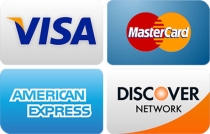There are a few basic release options. These options are:
Released on Your Own Recognizance
Out of pocket cost: $0!
This type of bond is for individuals that judges deem to be a very low danger to the public and a very low flight risk. In these cases, there is no payment made in the form of a bail bond, the defendant is released and signs an agreement that s/he will show up in court and will refrain from engaging in illegal activity.
If the defendant fails to show up for court, then a financial penalty is assessed – then the defendant must pay the bond.
Surety Bonds
Out of pocket cost in VA is set by law: 10-15%

Sometimes bail can be exorbitant! But our bail bondman will try to find a way to make it work for you.
These types of bail bonds are the kind you hear about the most. They are used when the judge sets a specific amount of money that must be paid to bail someone out of jail and the defendant does not have enough cash to cover the cost. A third party, such as Kwik and EZ Bail Bonds, can pay for the bail and assume responsibility for the defendant showing up in court. If the defendant shows up for court, the bail amount is returned to the bail bondsman; if not, the bail bondsman loses the money.
The bail bondsman will assess the risk that a person will or will not show up for court and may, if the risk is out of normal range, require that the defendant or a friend or family member put up some additional collateral.
Cash Bail
Out of pocket cost: the whole amount of the bond!
Sometimes, the judge will set a specific amount that must be paid in order to bail the defendant out of jail, known as cash bail bonds.
This is often used in cases where the judge is not sure whether the defendant will show up for court, or when s/he has unpaid fines or fees from other cases. If the defendant, or the defendant’s friends or family, have this amount of money available, they can pay the bond. As long as the defendant shows up for his/her court date, the cash will be returned to the person who paid the bond less whatever fines or amounts are due.
Federal Bonds
In federal cases handled outside of the local or state jurisdiction, federal bonds may be issued. While there is no collateral required, two individuals must prove they have the means to pay the bail in case the defendant fails to show up for court, and sign an agreement that they will pay if that happens.
Property Bonds
If you do not have cash on hand and prefer not to work with a third party, you can also put up property as collateral. In these cases, the property must be valued at least twice the cost of bail.
Immigration Bonds
These are reserved for illegal immigrants who get arrested, and are generally more expensive than traditional bonds. They must be arranged through federal offices, they are not used in state or local courts, and bail bondsman must obtain special certification in order to administer immigration bonds.
Jail is not a place where you want to spend a lot of time—by knowing about different types of bonds and the cases in which each one applies, you are better prepared in the event you find yourself locked up and need help getting out.








